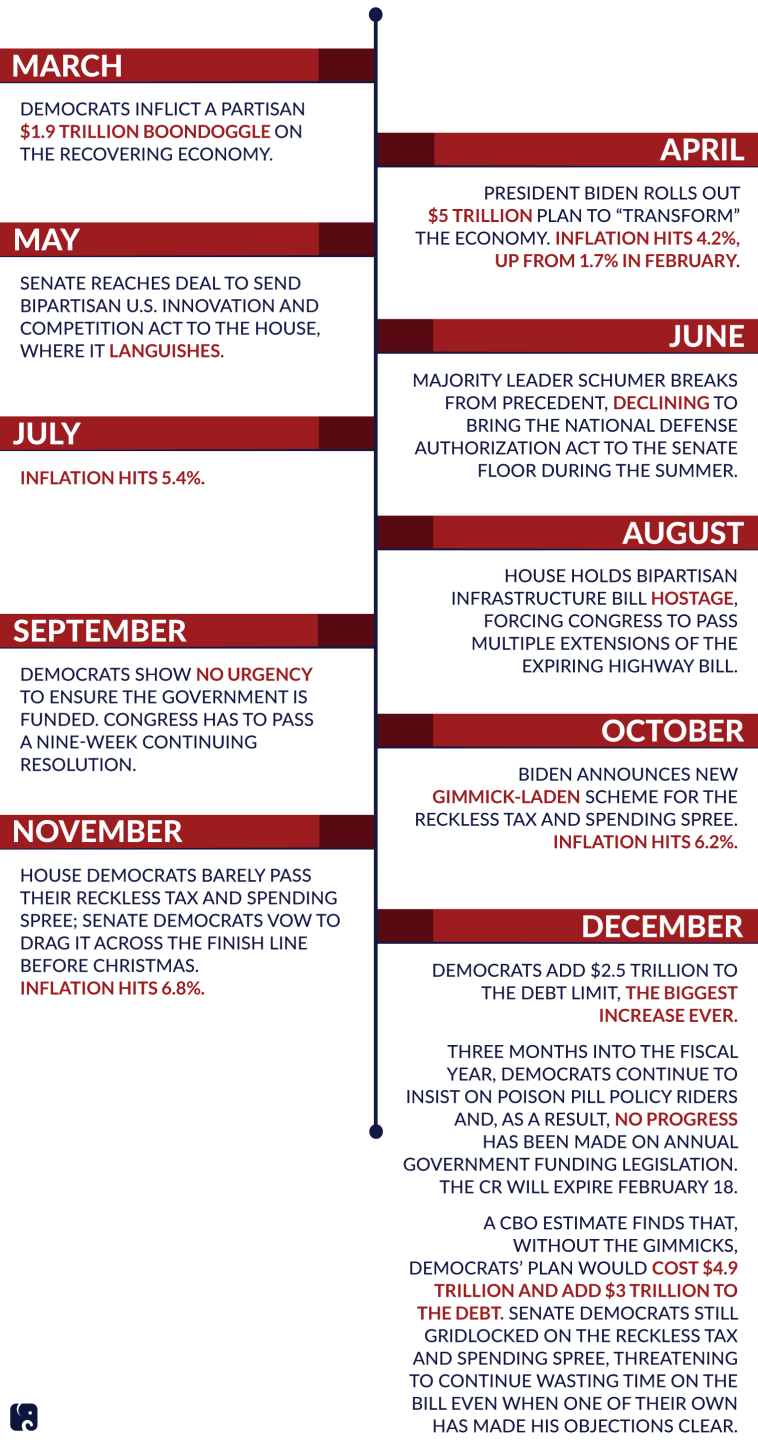The 2024 political race was largely considered a judgement of the nation’s inflation crisis. Voters were visibly agitated by skyrocketing prices, and unsurprisingly, the Democrats bore the brunt of their frustrations. Even though inflation has decelerated to an annual rate of 2.6% in October, the overall prices have significantly escalated since February 2020 by about 21.4%. Inflation was a dominant concern among the electorate, further tarnishing the already tenuous prospects of the Democrats.
Apart from the overall rise, what irked voters more was that approximately 75% felt that the impact of inflation was biting hard into their finances. As one economist pointed out, this election saw Americans confronting high inflation for the first time, resulting in their strong displeasure. But should we let the current administration shoulder all the blame? They would love us to believe otherwise. However, even a moderate scrutiny indicates that they are certainly not without fault.
The majority are quick to cast the global pandemic as the primary culprit behind our inflation woes, conveniently exonerating the reigning administration. The sequence of events following the onslaught of Covid-19 indeed contributed to the recession and trailing inflation. However, the response from both, the previous and the existing administrations, did more than feeding into the inflationary spiral, it brought about lasting economical consequences.
Take the example of the multilevel stimulus aid that was rolled out to counter the recession. The Federal Reserve reduced interest rates and funneled funds into the economy aiming to steer clear of another 2008-like Great Recession. Well-intentioned as it may have been, this approach played its part in fermenting inflation, which eventually swayed the election results.
An army of economists would have us believe that the pandemic was the driving factor behind the unparalleled price hike. They argue that irrespective of who was at the helm, inflation was imminent. However, such assertions conveniently tend to absolve the current administration of any accountability for their policies, essentially rubbing salt on the wounds of the overburdened public.
The basic principle of inflation, ‘demand exceeding supply’, became globally apparent as the world emerged from the episode of the shutdown. Consumers were met with pervasive shortages of products, triggering a surge in prices. Yet notably, this occurred against the backdrop of a large stimulus bill approved in March, authorizing payments to Americans grappling with the pandemic’s impact.
Two rounds of stimulus remedies had already been dispensed by the previous administration. In this context, several economists debate the necessity of a third relief package, pinpointing it as immoderate and potentially destabilizing for the economy. It seems this viewpoint is gaining traction lately, judging by the increased number of economists aligning with this opinion.
The choice to disburse yet another stimulus has been labeled by many as a critical turning point in the inflation saga. For such critics, this move undeniably contributed to the subsequent boom in customer prices. Yet, some economists seek to play down its importance, presumably to shift the blame elsewhere.
Adding fuel to the fire, inflation spiked noticeably in the aftermath of a major geopolitical event. This particular incident, as one economist phrased it, ‘issued shockwaves through the commodities markets.’ Resultantly, a fresh round of inflationary pressure was set into motion.
In what appears to be an afterthought to the narrative of the overheated economy, the Federal Reserve took the initiative to boost interest rates. The central bank raised rates by more than five percentage points, peaking at over 5% in a seemingly belated attempt to suppress soaring prices.
When the majority of economists were asked, they did not find fault with the increase per se, but rather with the lagged reaction. They keenly point out the independent nature of the Federal Reserve, suggesting consumers should not blame the current administration for the delayed response to the inflation crisis. But this does little to appease the already frustrated public.
Reverting to 2020, amidst the pandemic, the Federal Reserve embarked on massive debt securities purchases, thus augmenting the money supply. In essence, this fed into the snowballing inflation. As the pandemic receded, and the world economy readjusted, inflation continued to wreak havoc largely due to the excessive stimulus.
Slowly but steadily, inflation began to soften with the annual rate now teetering near the Federal Reserve’s target of 2%. Nevertheless, the aftermath of persistent inflation is still visible to consumers: Prices remain stubbornly high. This has been a bitter pill to swallow for Americans, smarting from the economic hardships foisted upon them.
Both the Republicans and Democrats have lost their presidential stints in 2020 and 2024, respectively. The tale of these losses is intrinsically tied to the shared story of the pandemic and its consequential economic effects. Needless to say, the public has not been forgiving towards the inability or unwillingness of the administrations to efficiently manage this crisis.
While some may argue that it would be unfair to judge the administrations based on the unprecedented challenge of the pandemic, this perspective overlooks significant elements. The policies implemented in response, the timing of actions, and the overall handling of the crisis indeed left much to be desired. Oftentimes, correct diagnosis and proper treatment of a problem are more important than the problem itself.
Looking ahead, policy makers should take this as a lesson learned – the hard way. Clearer communication, prudent strategies, and responsibly timed interventions need to be the pillars of future economic decisions. Regardless of the cause, it’s the role of the administration to protect its electorate from the brunt of such economic blows and evidently, this has fallen short of what was expected.


